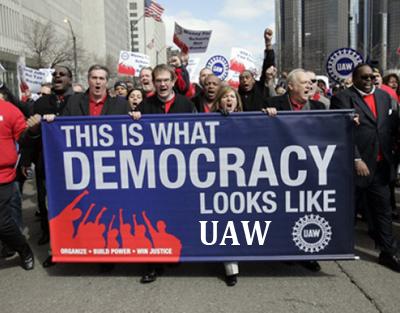Gingrey: Taxpayer Accountability nix taxpayer-funded Big Labor Officials
Rep. Phil Gingrey, R-Ga., plans to reintroduce the 2011 Federal Employee Accountability Act in the 113th Congress, a bill would…
Rep. Phil Gingrey, R-Ga., plans to reintroduce the 2011 Federal Employee Accountability Act in the 113th Congress, a bill would…

Right to Work leader, U.S. Rep. Steve King is under attack from Washington D.C union bosses who are pooling resources to see him defeated this November. Politico reports that AFSCME, along with SEIU and the pro-Democratic candidate House Majority…

Right to Work leader, U.S. Rep. Steve King is under attack from Washington D.C union bosses who are pooling resources to see him defeated this November. Politico reports that AFSCME, along with SEIU and the pro-Democratic candidate House Majority…
WASHINGTON, D.C. | July 24, 2012 – On Wednesday, July 25 at 10:00 a.m., the Subcommittee on Health, Employment, Labor, and Pensions, chaired by Rep. Phil Roe (R-TN), will hold a hearing entitled “Examining Proposals to…
The hearing is scheduled at 10:00 a.m. in room 2175 Rayburn H.O.B. **View ARCHIVED WEBCAST of the Hearing** Please note that this feature is only available when Committee on Education and the Workforce hearings are in…

Governor Dannel Malloy (D-CT) Fox News is reporting that the “owner of several Connecticut nursing homes is calling for a criminal probe after union workers staged a mass walkout earlier this month, allegedly vandalizing and sabotaging the health care…

[media-credit id=7 align="alignright" width="300"][/media-credit]Eric Fruits, the president and chief economist at Economics International Corp., an economics consulting firm, makes the case on why passing a Right to Work statute in New Mexico would help create jobs and prosperity: Right-to-work legislation is one of the very few pro-growth policies that is virtually costless to enact. And a large body of research has found that it benefits states economically. New Mexico, along with much of the country, still struggles to recover from a recession that began more than four years ago. While the state has benefited from the recent energy boom, states like New Mexico have struggled to cope with the employment consequences of the recession. In response, policymakers have tended to focus on fiscal policies such as tax cuts and “stimulus spending” rather than market structural solutions. Right-to-work laws can be a key component of a pro-investment and pro-employment package for New Mexico that encourages firms to locate and expand in the state. A large body of research has found that, as a group, right-to-work states have enjoyed more rapid employment growth, better job preservation and faster recoveries from recession that states without right-to-work laws in place. New Mexico has recognized this when the Legislature passed right-to-work legislation twice – in 1979 and 1981 – only to see the legislation vetoed by then-Gov. Bruce King. Proponents of right-to-work legislation argue that individuals should have the choice of whether or not to join a union and that the choice of whether to join a union should not be a condition of employment. They point to the relatively rapid growth in employment and incomes in right-to-work states relative to non-right-to-work states.
National Right to Work President Mark Mix discusses union bosses’ efforts to hide their finances from their members:…

[media-credit id=7 align="alignleft" width="300"][/media-credit]President Barack Obama’s former auto industry adviser and two former Treasury Department officials cracked at the last minute before a House oversight committee subcommittee hearing and agreed to stop stonewalling an investigation into alleged union favoritism during the administration’s General Motors bailout, the Daily Caller reports. Observers expect the documents to be a treasure trove of information on how the administration used the bailout to reward their big labor buddies at the expense of taxpayers and workers. The Caller continues: Ron Bloom, Obama’s former auto czar, and former Treasury officials Matt Feldman and Harry Wilson have refused to give interviews to the Special Inspector General for the Troubled Asset Relief Program (SIGTARP) about their roles in topping up pensions for union workers while non-union workers lost nearly their entire pensions. The Treasury Department’s actions during the auto bailout caused 20,000 non-union workers from Delphi to lose most of their pensions. Delphi, a GM company, is one of the largest automotive parts manufacturers in the world. Its workers lost their pensions when the government bailed out GM. While those non-union Delphi workers lost nearly their entire pensions, United Auto Workers union members’ pensions were topped off and made whole. While Feldman, Bloom and Wilson have maintained they think no preferential treatment was given to the unions during the bailout, emails The Daily Caller obtained in June 2011 show senior officials corresponding with senior GM officials on how to make certain decisions regarding who was going to win and who was going to lose.